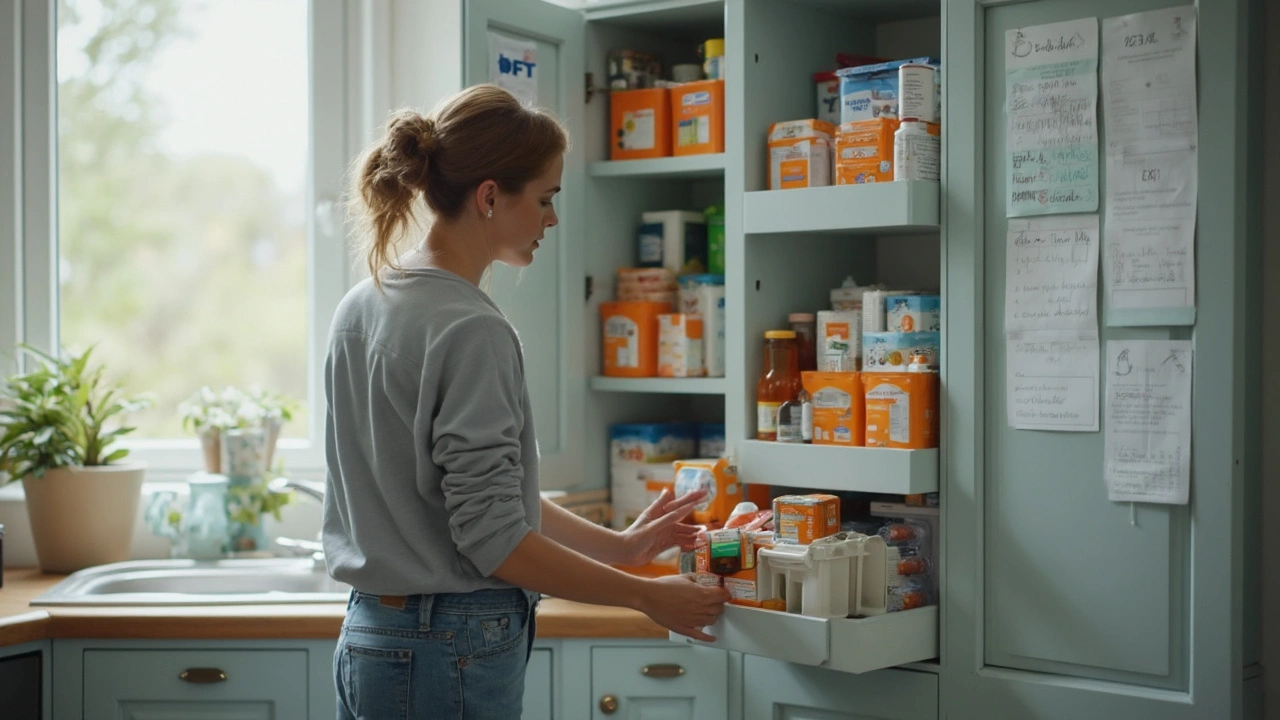Temperature Control: Keep Your Meds Working Properly
Ever wonder why some drugs lose their punch after a few weeks? It’s not magic – it’s temperature. When pills, vaccines, or liquids get too hot or cold, the chemicals can break down. That means you might be taking a weaker dose without even knowing it.
Why Temperature Matters
Most medications are designed to sit in a cool, dry place. Heat speeds up chemical reactions, so a tablet left on a sunny windowsill can degrade faster than expected. Cold isn’t any better – some liquids freeze, change texture, or become less absorbable. The result? You could miss the intended effect, whether it’s pain relief, infection control, or hormone balance.
Simple Storage Hacks
First, find a spot in your home that stays around 68‑77°F (20‑25°C). A kitchen cabinet works if you don’t store it above the stove. Keep meds away from bathrooms where humidity spikes after showers – moisture can cause tablets to crumble.
If you travel often, pack medicines in an insulated pouch with a small ice pack for short trips. Make sure the pack isn’t touching the bottles directly; use a thin cloth barrier so the drug doesn’t freeze. For long flights, check airline policies – many let you bring a small cooler bag as long as it’s sealed.
When buying over‑the‑counter vitamins or supplements, glance at the label for storage instructions. Some probiotics need refrigeration to stay alive; others are fine at room temperature. Following the label saves money and avoids wasted pills.
Don’t forget your fridge. Certain antibiotics, insulin, and biologics must stay cold but not frozen. Put them on a middle shelf, away from the freezer door. Label each container with the date you opened it – many drugs lose potency after a set number of days once exposed to air.
If you live in a hot climate, consider a small countertop cooler or a temperature‑monitoring device. Some smart thermometers send alerts to your phone if the storage area gets too warm. It’s cheap insurance against accidental spoilage.
Finally, stay organized. Group meds by type and check expiration dates every few months. Throw out anything past its date – even if it looks fine, the active ingredients may have faded. A tidy cabinet also makes it easier to spot a bottle that’s been left in the wrong place.
Bottom line: keeping your meds at the right temperature is as important as taking them on schedule. With a few simple steps, you can protect their strength, save money, and stay healthier.
Bulk Ordering Medications: Maximize Savings with Shelf-Life, Temperature, and Customs Tips
Looking to slash your prescription costs? This article digs into bulk ordering medications with a sharp focus on how to handle shelf-life, temperature control, and customs hurdles. You’ll get clear, step-by-step tips and facts to make bulk buying safe, smart, and budget-friendly. Find out how to store meds the right way, dodge spoilage issues, and deal with international shipping without surprises. Save money while staying healthy with this up-to-date, hands-on guide.
